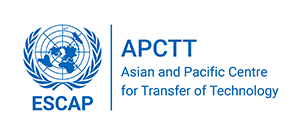L(-) Malic acid Production Technology
Background information The malic acid is one of the hydroxy acids that are produced by aerobic organisms in the so-called citric acid cycle (Szent-Gyorgyi – Krebs cycle). As natural organic acid, L(-) malic acid exists in various fruits and vegetables, giving fresh acidic taste. It is recognized as an acidic agent which has high additional value in different foods, from the feature of non-volatility, easy-to-cook-, and less hygroscopic nature. According to Fuso Chemical (the biggest world producer of DL Malic acid) it is known as a result of the panel test of many times that equivalent acidity is left from malic acid of a few quantities as compared with citric acid. Because of its lower melting point, it is preferably prescribed than other food acid for candy manufacture. Malic acid’s synergism with certain food ingredients and flavors makes it a versatile and flexible acid of choice to create new taste sensations and to add new twists to existing products. Malate is widely used by the pharmaceutical and food industries and has a potential to be used for production of biodegradable polymers that could replace plastics. Innovation of the product The new technology of the Hungarian leading biotechnology centre produces only the biologically active L(-) form. This new biosynthesis process of L(-) malic acid has proved to be more efficient and cost effective than the presently used ones. Genetically altered micro-organisms and a continuous flow-through conversion assure the efficiency of this method. The method uses genetically enhanced, immobilized, and killed micro-organisms that have highly elevated (one thousand-fold) catalytic potential over the unaltered cells. This modification pushes the chemical equilibrium towards the required 98% conversion; consequently this new method enables an 80% conversion in industrial scale while the existing technologies have maximum 70% conversion capacity. Not only do the cell immobilization techniques increase the original activity potential, but also allow a continuous flow-through conversion. Moreover, the reactor column possesses extremely long half life time (600 days). The bioreactor does not produce any bypass products e.g. amino acids, or other organic acids from the substrate. The scientific team scaled up the reactor technique to a working volume of 25 liters and optimized the various parameters affecting the production. A reactor with 25 liters /hour capacity can produce approximately 30 tons of L(-) malate per year. The second basic thing in the offered technology is the downstream process. We have tested a pilot, modified electro dialysis equipment (EDU) technique based on bipolar membrane operation. We have combined the bioreactor with EDU process. During the downstream process, we have recovered residual fumarate, and the alkali, and the most part of the solvent (water) too, putting them back to the first step of the technology.
Sector: Biotechnology
Country: Hungary
Area of Application: Potential areas of use • Food industry • Chemical industry • Pharmaceutical industry
Keywords: malic acid, fumarate
Advantages: This technology has some significant advantages in comparison with the traditional fermentation and chemical production. Firstly, downstream operations become cheaper by the high conversion rate and lack of bypass products. Secondly, the very intensive technology decreases the investment expenditures. Thirdly, it is an environment friendly production, which does not have any effect on human health. There are no environmental risks or contraindications to use this technology, because the genetically modified cells are killed before use. No huge amount of waste water, no bypass salts (esq. NaCl, CaSO4). The bioreactors are working as enzyme reactors during the process.
Environmental aspects: Cleaner Production
Development Status: Laboratory Model
Legal Protection:
Technical specifications:
Transfer Terms: Technology Licensing , Research Partnerships
Target Countries: World Wide
Estimated cost (US$):
Upload any relevant document:
Contact Person: Laser Consult Ltd (Hungary)
Address: H-6701 PO Box 1191.
City: Szeged
Country: Hungary
Zip/Pin Code:

